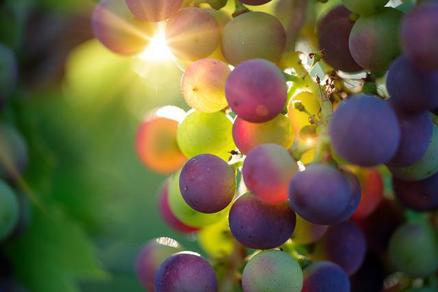What is bi'ur of shemitah fruit?

Bi'ur, do you need to burn fruit, what is the reason for this mitzvah, and for which fruits exactly does it apply?
Now that the bi'ur time for cherries has recently arrived (mid-Av), we will explore the laws of bi'ur.
The Torah states (Vayikra 25:7): "And your cattle and beasts in your land may eat all its yield." Chazal learn from here that as long as animals eat this type of produce in the field, we can eat it at home. Once it is finished for animals in the field, we must get rid of (leva'er) the type of produce from the home.
Once bi'ur time arrives, we need to remove the shemitah produce stored at home. We should declare it ownerless for the poor and anyone else.
Bi'ur - to burn or not to burn?
There is a basic dispute between Rambam and Ramban as to what bi'ur involves.
Rambam holds that bi'ur is an independent biblical injunction. In his view, bi'ur involves giving out excess amounts to neighbors, and if one has any left, he needs to burn, throw into the sea, or otherwise destroy the produce. As Rambam sees it, this is similar to the mitzvah of bi'ur chametz.
Ramban, on the other hand, maintains that bi'ur is rabbinic and it is part of the mitzvah of hefker. This being the case, the intent is to render the produce ownerless. In his view, it is sufficient to leave the produce outside and let any Jew partake of it.
Just as at the start of the season, we render fruit ownerless on the trees and allow anyone to take three meal's worth (i.e. one week's worth of family consumption; the "three meals" is the term used by the Mishnah), at the end of the season, we need to render them ownerless again, whereas each person can take this amount home. In practice, if no one wants to take the fruit, we are lenient and allow the owner to take the fruit back after 30 minutes.
The majority opinion follows the ruling of Ramban.
Rationales for bi'ur - ta'amei hamitzvah
One rationale for the mitzvah of bi'ur is to highlight our lack of ownership of the land.
I can eat the produce in my home only as long as everyone else can—that is, when it is still available in the field and accessible to all (animals included!). The moment it is no longer in the field, and the public cannot partake of the produce, neither can I (the owner of the produce).
Possibly, the purpose of the bi'ur obligation is to encourage sharing the produce in our ownership, since bi'ur applies only to large quantities (more than three meals). In this way, before the bi'ur deadline, people give out their extra produce to neighbors and friends. This is similar to the laws governing ma'aser sheni, where the produce owner should invite many guests to his table. The same idea applies to the mitzvah to eat the 40 loaves of bread at the korban todah meal in Jerusalem in one day, which induces the one bringing the sacrifice to invite many people to the festive meal to help finish the food.
What does bi'ur apply to?
- Seeds and peels designated for human or animal consumption have kedushat shevi'it and are subject to bi'ur.
- Bi'ur does not apply to produce without kedushat shevi'it, such as crops growing on land belonging to a non-Jew and produce grown on land sold through heter mechirah.
Even those stringent about treating produce as sacred when it is grown on land belonging to non-Jews need not perform bi'ur with such produce.
- Bi'ur does not apply to fruit still on a tree.
Bi'ur and otzar beit din
Bi'ur does not apply to ownerless produce or produce under the auspices of otzar beit din. However, bi'ur does apply to produce taken from hefker or otzar beit din before bi'ur time. If you buy a bottle of otzar beit din grape juice before the bi'ur deadline, bi'ur would apply to the grape juice at its bi'ur time. If bought after this time, it is permissible to use.
Perhaps we can understand this in light of the rationales we saw before:
Bi'ur underscores our lack of ownership of the produce. According to Ramban, as we learned earlier this week, the mitzvah is a derivative of hefker.
If the produce is already ownerless at the bi'ur time, or under the control of the otzar beit din, agents of the public, it is not privately owned. However, if one takes ownership from ownerless produce or produce distributed by otzar beit din before bi'ur time, if once again (before bi'ur time) it is privately owned.
When will bi'ur be applicable for most of us?
By bi'ur time, it is highly unlikely that we'll have fresh produce. However, we might have produce that we jarred, pickled, froze, or bottled (wine and olive oil).
Question: What happens, say mid-Av (bi'ur time for cherries), you have cherry jam that you cooked together with lemons (whose bi'ur time is in more than a year!)? What about if there are other non-sacred foods cooked or baked with the kedushat shevi'it cherries?
Answer: In such cases, even when there is a small amount of kedushat shevi'it produce subject to bi'ur in the mixture, the entire mixture will be obligated in bi'ur. This is true even if the shemitah produce subject to bi'ur is minuscule.
For more on the laws of bi'ur, see Chapter 24 of The Consumer's Guide to Shemitah https://en.toraland.org.il/beit-midrash/halachic-guides/hilchot-haaretz/hilchot-shemitah/shemitah-chapter-24-halachic-principles-of-biur-for-shemitah-produce/
To see a film about Bi'ur: https://en.toraland.org.il/beit-midrash/videos/shemita/biur/




